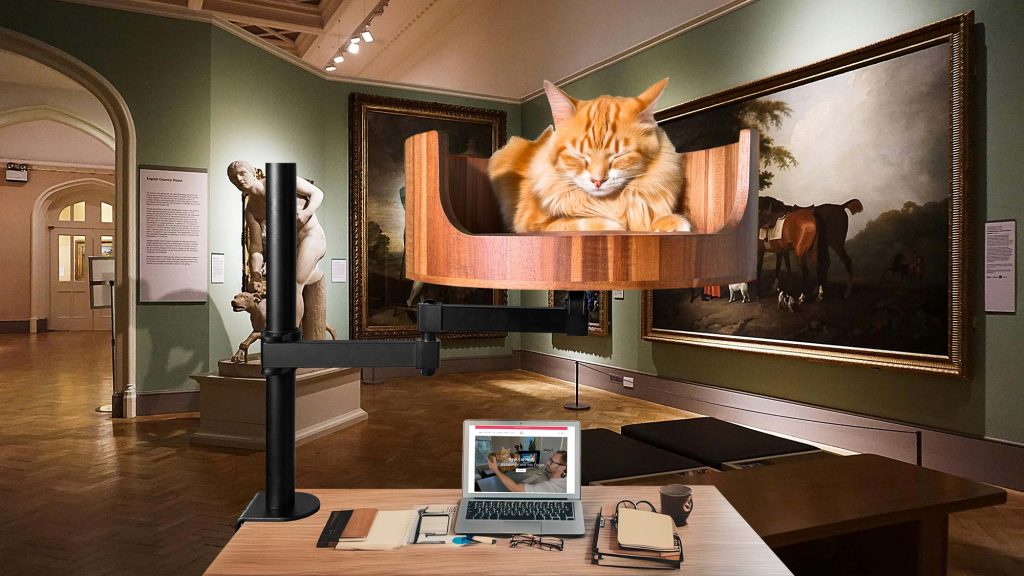Are you curious about the breed of your cat? Have you ever wondered about the feline heritage that your beloved pet comes from? In this article, we will explore the topic of cat breeds and how you can discover more about your cat’s lineage. Whether you have a graceful Siamese, a fluffy Maine Coon, or a sleek Bengal, understanding your cat’s breed can provide valuable insights into its behavior, temperament, and possible health risks.
We will discuss the history of different cat breeds, how they were developed, and the unique characteristics that define each breed. Additionally, we will provide tips on how you can determine the breed of your cat, including visual cues, genetic testing, and consulting with a veterinarian. By learning more about your cat’s breed, you can strengthen your bond with your feline friend and provide the best possible care based on its specific needs. Discovering your cat’s heritage is not only fun and informative, but it can also help you better understand and appreciate the fascinating world of feline genetics.
1. Understanding your cat’s breed can provide insight into behavior, health, and specific care needs.
2. Mixed-breed cats can exhibit traits from multiple breeds, making it challenging to determine their heritage.
3. DNA testing kits are available to help identify a cat’s breed heritage with accuracy and precision.
4. Recognizing your cat’s breed can enhance the bond between pet and owner by tailoring interactions and care to their specific needs.
5. Learning about your cat’s breed history can be a fascinating journey that deepens your appreciation for their unique characteristics and qualities.
## The Origins and History of the Maine Coon Breed
The Maine Coon is one of the oldest natural breeds in North America, with origins dating back to the 19th century. They are believed to have descended from longhaired cats brought over by European sailors, who subsequently bred with local shorthaired cats in Maine. The breed’s thick fur, tufted ears, and bushy tail are thought to have been adaptations to the harsh Maine winters. Maine Coons are known for their friendly and sociable nature, making them popular as family pets.
## Physical Characteristics and Common Traits of Maine Coons
Maine Coons are a large and sturdy breed, with males averaging between 13-18 pounds and females between 8-12 pounds. They have a semi-long, water-resistant coat that comes in a wide variety of colors and patterns. Their tufted ears, large expressive eyes, and bushy tail are distinctive features of the breed. Maine Coons are known for their playful and outgoing personalities, as well as their intelligence and adaptability. They are often described as “dog-like” in their behavior, as they enjoy playing fetch and going for walks on a leash.
## Care and Maintenance of Maine Coon Cats
Because of their thick fur, Maine Coons require regular grooming to prevent matting and hairballs. Brushing their coat a few times a week can help keep it in good condition and reduce shedding. Additionally, Maine Coons are prone to obesity, so it’s important to monitor their diet and provide plenty of opportunities for exercise. Regular veterinary check-ups are also essential to ensure their health and well-being. Maine Coons are generally healthy cats, but they may be predisposed to certain genetic conditions such as hypertrophic cardiomyopathy and hip dysplasia.
## Training and Socialization Tips for Maine Coon Cats
Maine Coons are highly intelligent and trainable cats, which makes them a joy to work with. Positive reinforcement techniques, such as clicker training or treats, can be effective in teaching them new tricks or behaviors. Maine Coons are also social creatures and enjoy the company of their human family members. Providing them with plenty of interactive toys, scratching posts, and climbing structures can help keep them mentally and physically stimulated. Early socialization is key to ensuring that they grow up to be well-adjusted and confident cats.
Desk Cat Nest FAQ
What breed of cats is the Desk Cat Nest suitable for?
The Desk Cat Nest is suitable for all breeds of cats, including Persian, Siamese, Maine Coon, Ragdoll, and more. The size and design of the nest allow cats of all sizes and breeds to enjoy it comfortably.
Will my cat feel comfortable in the Desk Cat Nest?
Yes, the Desk Cat Nest is designed to provide a cozy and safe space for cats to relax and sleep. The soft cushioning and enclosed design create a comfortable and secure environment that cats love.
Is the Desk Cat Nest easy to clean?
Yes, the Desk Cat Nest is equipped with a removable and washable cushion for easy cleaning. Simply unzip the cushion and wash it as needed to keep the nest clean and fresh for your cat.
Will my cat use the Desk Cat Nest if they are not used to using a cat bed?
Many cats may take some time to get used to a new bed or sleeping space. However, with some patience and encouragement, most cats will eventually cozy up to the Desk Cat Nest and start using it regularly.
Can multiple cats use the Desk Cat Nest at the same time?
While the Desk Cat Nest is designed to accommodate one cat comfortably, some cats may be willing to share the space with others. However, it is recommended to provide each cat with their own nest to prevent any territorial issues.
In conclusion, the Desk Cat Bed is the perfect choice for owners of the breed of my cat. Not only does it provide a cozy and comfortable place for your cat to rest, but it also helps to protect your furniture from scratches and shedding. With its compact size and sleek design, the Desk Cat Bed seamlessly integrates into any modern home office or workspace. Invest in the Desk Cat Bed today to give your cat a dedicated space to relax and sleep while also enhancing the overall look of your space.


